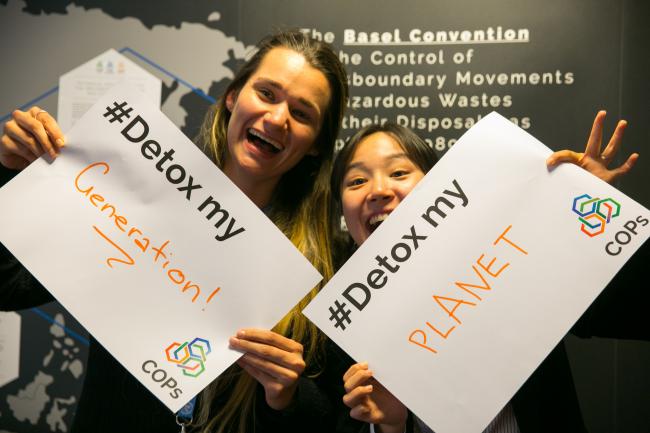The global disruptions caused by the COVID-19 pandemic manifested in multiple ways on the opening day of the meetings of the Conferences of the Parties to the Basel, Rotterdam and Stockholm Conventions.
In the opening session, participants highlighted the importance of international collaboration to manage chemicals and wastes, with several underscoring that the pandemic has exacerbated these challenges by, for example, generating unprecedented amounts of medical waste. Several delegates also emphasized the interlinkages among pollution, climate change and biodiversity loss.
The virtual format of this meeting also created challenges for participants. Delegations following the streaming-only section of the platform raised concerns about audio, while many presenters experienced connectivity issues that prevented them from intervening in discussions. Poor sound quality also made the job of the interpreters much more difficult, at times forcing them to interpret only snippets of delegates’ interventions. In response, at the close of the plenary, the Secretariat made arrangements for delegates to access a recording of this first day of deliberations.
As a result of the pandemic, this set of meetings is being held in two segments: the first in this virtual setting, with the second scheduled as an in-person event in June, 2022. On Monday, Parties agreed to use this virtual meeting to address only those issues necessary to keep the conventions operating until parties can meet face-to-face. These issues include:
- agreeing on interim programmes of work and budgets for 2022 to support the Secretariat’s work, to be further negotiated and finalized at a face-to-face segment of the COPs,
- considering guidance to the Global Environment Facility, the Stockholm Convention’s financial mechanism, given ongoing negotiations for its eighth replenishment,
- administrative work to allow subsidiary bodies to continue their work, including the election of officers to serve on the two subsidiary bodies established by the last COPs, namely the Rotterdam Convention’s Compliance Committee and the Stockholm Convention’s Effectiveness Evaluation Committee, and,
- agreeing to the venue and date for the next meeting.
This last item, normally little more than a formality at this stage, involved a lengthy discussion of the challenges of virtual meetings, with many countries emphasizing that inclusivity and transparency are best achieved in face-to-face settings.
Over the next three days, parties will meet in a closed contact group to hammer out agreement on interim budgets and programmes of work that will keep all three conventions on track over the next year. Parties and observers are also invited to attend an array of side-events on topics such plastic pollution and the 20th anniversary of the Stockholm Convention. Plenary will resume on Friday, 30 July, to consider the outcomes of contact group deliberations and to adopt any decisions that can be finalized at this segment of the COPs.
To receive free coverage of global environmental events delivered to your inbox, subscribe to the ENB Update newsletter.

















